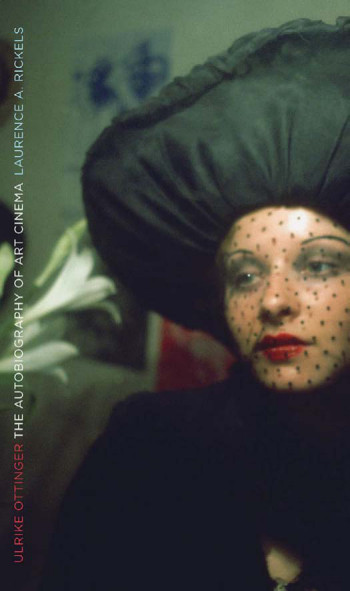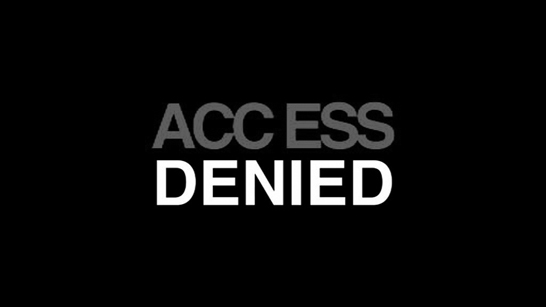Laurence A. Rickels: Ulrike Ottinger: The Autobiography of Art Cinema (2008)
Filed under book | Tags: · cinema, documentary film, film, film criticism, photography

Since 1974, German filmmaker Ulrike Ottinger has created a substantial body of films that explore a world of difference defined by the tension and transfer between settled and nomadic ways of life. In many of her films, including Exile Shanghai, an experimental documentary about the Jews of Shanghai, and Joan of Arc of Mongolia, in which passengers on the Trans-Siberian Express are abducted by Mongolian bandits, she also probes the encounter with the other, whether exotic or simply unpredictable.
In Ulrike Ottinger Laurence A. Rickels offers a series of sensitive and original analyses of Ottinger’s films, as well as her more recent photographic artworks, situated within a dazzling thought experiment centered on the history of art cinema through the turn of the twenty-first century. In addition to commemorating the death of a once-vital art form, this book also affirms Ottinger’s defiantly optimistic turn toward the documentary film as a means of mediating present clashes between tradition and modernity, between the local and the global.
Widely regarded as a singular and provocative talent, Ottinger’s conspicuous absence from critical discourse is, for Rickels, symptomatic of the art cinema’s demise. Incorporating interviews he conducted with Ottinger and illustrated with stunning examples from her photographic oeuvre, this book takes up the challenges posed by Ottinger’s filmography to interrogate, ultimately, the very practice—and possibility—of art cinema today.
Publisher University of Minnesota Press, 2008
ISBN 0816653305, 9780816653300
288 pages
Vertigo Magazine, 30: Godard Is (2012)
Filed under magazine | Tags: · cinema, film, film criticism, film history, film theory

“An image of the Virgin and her baby on a donkey doesn’t cause a war; its interpretation by a text is what will lead to war and cause Luther’s soldiers to go and deface Raphael canvases. I have a strong feeling that the image enables us to talk less and say more.” – Jean-Luc Godard
“There are very few important books written about film or cinema. Maybe one should only read Bresson’s Notes on the Cinematographer, Ramuz’s novels or even Giacometti’s writings to understand what cinema is. Everything else is better written, or thought of in philosophy, poetry and literature. So why more writings on film? To incite, by any means, the desire to see these films which otherwise would be lost in the cultural wasteland we are crossing.
[..] Vertigo Magazine takes inspiration from Godard’s oeuvre. Godard is one if not the most influential filmmaker to explore the role of the moving image within aesthetics, politics and history. His work represents in its most emblematic way the crossover between the poetical and the historical, cinema and the arts, which will also be at the core of our publication. A ‘double bind’, Guattari’s crayfish.” (from the Editorial)
Contributions by Frieda Grafe, David Brancaleone, Corin Depper, James Norton, Jürgen E. Müller, Duncan White, James S. Williams, Adrian Martin, Ágnes Pethő, Jerry White, Robert Barry, Roland-François Lack, Cyril Neyrat, Jonathan Rosenbaum.
Editor: Damien Sanville
Assistant Editor: Michael Garrad
Commissioning Editors: Julian Ross, Robert Chilcott
Publisher: Close-Up Film Centre, London, UK, Spring 2012
Godard on Godard: Critical Writings by Jean-Luc Godard (1968/1986)
Filed under book | Tags: · cinema, film, film criticism, film history, film theory

Jean-Luc Godard, like many of his European contemporaries, came to filmmaking through film criticism. This collection of essays and interviews, ranging from his early efforts for La Gazette du Cinéma to his later writings for Cahiers du Cinéma, reflects his dazzling intelligence, biting wit, maddening judgments, and complete unpredictability. In writing about Hitchcock, Welles, Bergman, Truffaut, Bresson, and Renoir, Godard is also writing about himself—his own experiments, obsessions, discoveries. This book offers evidence that he may be even more original as a thinker about film than as a director. Covering the period of 1950–1967, the years of Breathless, A Woman Is a Woman, My Life to Live, Alphaville, La Chinoise, and Weekend, this book of writings is an important document and a fascinating study of a vital stage in Godard’s career. With commentary by Tom Milne and Richard Roud, and an extensive new foreword by Annette Michelson that reassesses Godard in light of his later films, here is an outrageous self-portrait by a director who, even now, continues to amaze and bedevil, and to chart new directions for cinema and for critical thought about its history.
Unabridged republication of the edition published in New York and London in 1972, originally published in French by Editions Belfond, 1968
Translated by Tom Milne
Edited by Jean Narboni and Tom Milne
New foreword by Annette Michelson
With an introduction by Richard Roud
Published by Da Capo Press, New York, 1986
ISBN 0306802597, 9780306802591
302 pages

